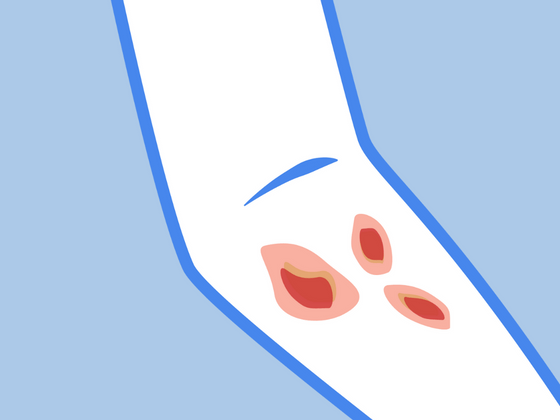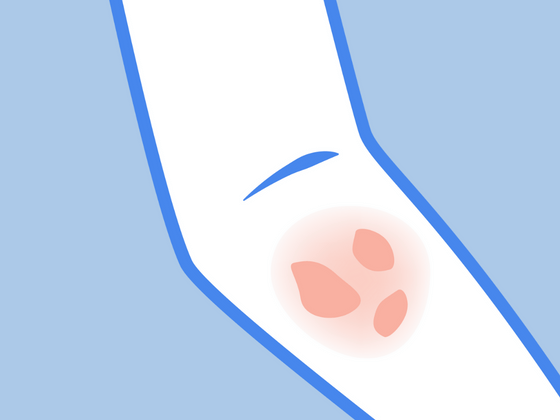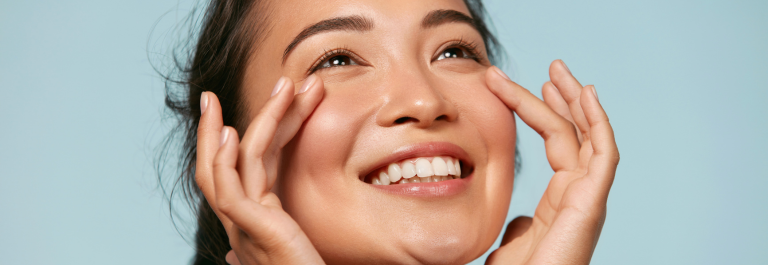Our bodies contain both "good" and "bad" bacteria. Probiotics are naturally occurring "good" bacteria that boost our immune system function and bolster our digestive system.
With all this goodness, it's no wonder that probiotics are also being considered as a treatment for eczema symptoms, working to reduce inflammation and promote a healthy skin microbiome.
Throughout this blog, we'll explore everything you need to know about:
-
The fundamental causes and symptoms of atopic dermatitis
-
The beneficial effects and potential risks of probiotic supplements for eczema
-
Alternative treatment options
Read on to learn more about how probiotics can support your journey towards healthy skin.
Causes of Eczema
Eczema is a chronic inflammatory skin disease caused by a combination of genetic and environmental triggers and affecting over 31 million people in the US. People with eczema experience an impaired skin barrier, which struggles to absorb and retain moisture, and an imbalanced skin microbiome.
The most common eczema is atopic dermatitis, characterized by dry patches of scaly, itchy skin.
Eczema is typically an inflammatory reaction to specific environmental irritants or allergens, such as the harsh chemicals within your laundry detergent or sudden changes in the weather. Using detergent for sensitive skin can help reduce these triggers.
Atopic eczema tends to reoccur in repetitive flare-ups. In severe cases, eczema can impair your quality of life and lead to secondary infections.
Who Is Most At Risk of Developing Eczema?
Eczema develops in early childhood, often before an infant's first birthday. While many eczema patients see their symptoms improve (or resolve) by the time they reach adolescence, for some individuals, eczema symptoms continue into adulthood, becoming a lifelong condition.
There's an increased likelihood of developing eczema if your parents or siblings experience it, too.
Due to a phenomenon known as the 'atopic march,' you are also more likely to develop atopic dermatitis if you experience asthma or any allergic diseases such as allergic rhinitis, food allergies, or hay fever.
How Do Probiotics Work For Eczema?
Probiotics are a form of "good" bacteria that keep your digestive system healthy. There are different probiotic strains, the most common being Lactobacillus sp and Bifidobacterium.
Common probiotic-rich foods include yogurt, miso, tempeh, raw cheese, fermented foods, dark chocolate, and apple cider vinegar. Probiotic supplements can also be taken as oral pills or topical probiotics, which are applied directly onto your itchy skin for soothing results.
Research suggests* that taking probiotics may not only improve your overall gut health but also significantly reduce the number of eczema flare-ups you experience by boosting your body's levels of beneficial bacteria and the healthy balance of your skin's microbiome. This, in turn, improves your skin's resiliency to environmental triggers.
Some other known benefits of consuming probiotics include:
-
promoting a healthy immune system
-
improving digestive function by diversifying your gut microbiome
-
helping to prevent any urinary tract infections
-
reducing eczema in infants when taken prenatally or by breastfeeding women, though eczema cream for babies may also be needed
Are There Any Risks To Consider?
While there is laboratory and clinical data to suggest probiotics for eczema can have beneficial effects, much of the research results are mixed, and there are conflicting opinions within the scientific community* about how helpful probiotics can be. Needless to say, more research is needed to support the use of probiotics for atopic dermatitis.
If you wish to add probiotics to your skin-care routine, it's best to talk with your healthcare provider about which probiotic strains are best for you. This is especially the case if you have irritable bowel syndrome, a compromised immune system, or any other chronic illness.
If you're trying a probiotic supplement for the first time, you may experience:
-
Bloating
-
Gas
-
Diarrhea
Alternative Treatment Options
When it comes to eczema, there is no one-size-fits-all. What helps one person might not help the next, and while this can feel anxiety-inducing, it's a relief to know that there are plenty of treatment options out there to try, including eczema cream. For example, depending on your eczema severity, conventional eczema treatments such as topical steroids may be crucial for getting eczema flares back under control for some people.
If you or your loved one think you might have atopic dermatitis, we would encourage you to consult your doctor for a diagnosis and support putting together a tailored treatment plan.
Alongside this, there are a few at-home solutions you may wish to try:
Use A Nourishing Moisturiser:
Dry skin is a predominant struggle for people with atopic dermatitis. This is because an impaired skin barrier struggles to hold and retain moisture.
If this sounds familiar, we recommend using a natural moisturizer like beef tallow cream to nourish your skin and boost hydration.
For example, this Super Dry Soother has been specially designed to combat even the most severe cases of atopic dermatitis. The herbs in this formula are traditionally used to promote circulation and heal rough, cracked, and chapped skin.
Wash With Natural Soap:
Many harsh chemicals in commercial soaps and body washes will strip your skin of natural oils, increasing the risk of eczema flares. Consider switching to eczema soap designed for sensitive skin.
Therefore, we encourage you to find a soap made with gentle ingredients, such as this 20% Pine Tar Soap with Tallow, to prevent an inflammatory response.
Pine tar has long been used as a natural remedy for wound healing. It is also highly anti-bacterial and anti-inflammatory, effectively treating atopic dermatitis, psoriasis, and rosacea.
The National Psoriasis Association recommends coal tar and pine tar to "help slow the rapid growth of skin cells and restore the skin's appearance. In addition, it can help reduce the inflammation, itching, and scaling of psoriasis."
Wear Hypoallergenic Clothing:
Lastly, suppose you're going through an eczema flare. In that case, one of the best ways to make yourself more comfortable is to switch to breathable, hypoallergenic underwear such as this 100% Organic Cotton Bra Liner and 100% Organic Cotton Women's latex-free panties.
These waist briefs feature cooling, natural 100% organic cotton fabric and are latex-free, helping to avoid allergic reactions or skin irritation.
Explore Probiotics for Eczema Today
Follow these tips to help you decide if probiotics are the right way forward for you or your family, improving your quality of life, and finding solutions that allow you to feel the best in your skin.








